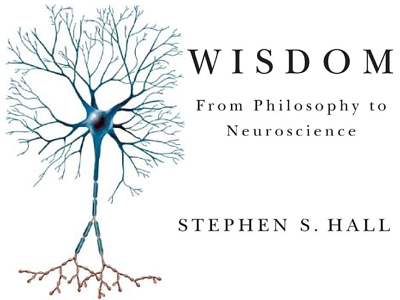 I read recently in the Journal of Financial Planning an article by Vern C. Hayden, CFP® entitled, “Our Highest Value to Clients.” In the article, Hayden reflects on lessons from Stephen S. Hall’s book, “Wisdom: from Philosophy to Neuroscience” as applied to the value of financial advisors. He writes that it caused him to wonder what wisdom really is:
I read recently in the Journal of Financial Planning an article by Vern C. Hayden, CFP® entitled, “Our Highest Value to Clients.” In the article, Hayden reflects on lessons from Stephen S. Hall’s book, “Wisdom: from Philosophy to Neuroscience” as applied to the value of financial advisors. He writes that it caused him to wonder what wisdom really is:
My inclination is to say that wisdom comes from a synthesis of life experiences and our ability to think and construct a lesson from those experiences. When we answer the tough questions, these cognitive experiences become our basis for judgment calls for clients.
I think this is one of the reasons why consumers use grey hair as a proxy for life experiences. Better is experience in being a fiduciary and sitting on the client’s side of the table. There are some among the commission-based agents and brokers of the world who have experience selling product, not exactly the grey-haired experience you were looking for. I would also suggest that experience in comprehensive wealth management is better than less comprehensive portfolio modeling. Knowing how it all fits together into comprehensive planning is key.
If you haven’t read the series of life planning articles or watched the life planning videoes I highly recommend starting there to understand what the differences are.
Hayden goes on to explain just one important aspect of comprehensive wealth management, and that is the idea of “framing”:
The book says, “One of the hallmarks of wisdom, what distinguishes it so sharply from ‘mere’ intelligence, is the ability to exercise good judgment in the face of imperfect knowledge.”
Another interesting aspect of wisdom comes into play when we have to restate an issue or problem for a client. Stephen Kosslyn, Ph.D., head of the psychiatry department at Harvard, discusses a relatively recent concept in cognitive psychology known as “framing,” which refers to the way we conceptualize a problem. He said, “People who are wise can interrupt, take a step back, and reframe, and a lot of wisdom probably has to do with looking at a situation differently and reframing.” An example of this would be when we know a client cannot retire on their current path, and we must “reframe” the situation for them.
We’ve found that the most important process is asking the right questions, and then giving enough calendar time for self-reflective and self-aware answers to arise. As important as analytical investment approaches are, this is the area that can bring the greatest satisfaction to clients.